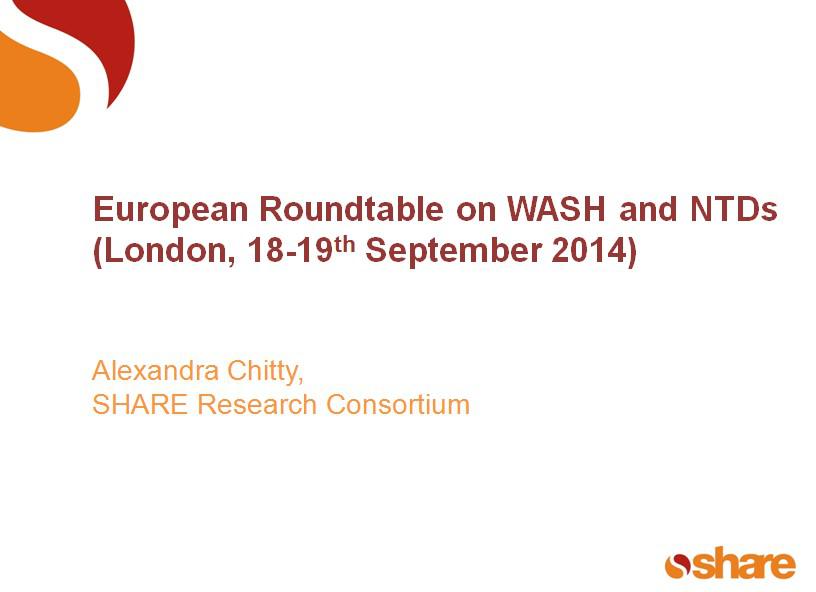SHARE Attends the NTD NGDO Network Annual Meeting in Paris

Last week, I attended the annual meeting of the Neglected Tropical Diseases Non-Governmental Development Organisations Network (NNN) in Paris. The NNN is a global network of NGOs working to control, eliminate and alleviate the suffering caused by 6 neglected tropical diseases (NTDs): onchocerciasis, lymphatic filariasis, schistosomiasis, soil transmitted helminths, trachoma, and leprosy. The NNN meets annually, bringing together NGOs, donors, and governments of NTD-endemic countries to share experiences and best practices that will assist them in reaching the World Health Organization’s (WHO) targets on NTDs. This year nearly 200 experts from more than 70 different organisations attended.
WASH and NTDs
SHARE has funded a series of systematic reviews on the relationship between WASH and NTDs and was pleased to be invited to attend this year’s NNN in Paris as this signalled that the NTD community has become increasingly cognisant of the salience of water, sanitation and hygiene (WASH) in preventing, controlling and eliminating many NTDs. Access to safe and improved WASH can, after all, not only assist in interrupting the transmission cycles of NTDs, but also facilitate NTD morbidity management and disability prevention (MMDP) activities such as the proper cleaning of NTD-related wounds and use of clean water during surgeries.
The inclusion of two WASH-related sessions at the NNN clearly illustrates that there is strong enthusiasm for greater collaboration between the WASH and NTD sectors, and this was very much the sentiment upon which the European Roundtable on WASH and NTDs that SHARE convened earlier this month was based.
SHARE’s role at the NNN
I was fortunate enough to be invited to present the outcomes of our European Roundtable to the NNN WASH Working Group at its inaugural meeting on 23rd September 2014. This was an excellent opportunity to ensure that some of the key actions identified at the roundtable were communicated to a wider pool of interested stakeholders and subsequently incorporated into the NNN WASH Working Group’s priority work plan.
You can view my presentation here.
Essentially, delegates at the European Roundtable had determined that the NNN WASH Working Group would be best placed to help advance the following four actions:
1. Scaling up the use of joint planning tools
2. Sharing good practice/evidence (e.g. via an online repository of WASH/NTD research)
3. Consulting on which WASH indicators should be used in NTD programmes
4. Establishing a united WASH voice within the Uniting to Combat NTDs coalition
As such, the break-out discussions following my presentation built on the momentum garnered and the European Roundtable and centred on possible next steps within each of these four actions. These were then subsequently instilled in discussions with WHO in NNN plenary sessions later in the week during which renewed commitment to WASH-NTD collaboration was articulated by WH) representatives.
Interestingly for SHARE, during plenary discussions, behaviour change (particularly relating to hygiene practices) was noted as a key area of interest for future inter-sectoral collaboration.
What are the next steps?
SHARE will continue to engage with discussions around greater WASH-NTD collaboration and, as a first step, will assist in two journal papers – one summarising progress towards greater collaboration since Seattle, and the other outlining the indicators that could govern collaboration between the WASH and NTDs sectors going forward.
